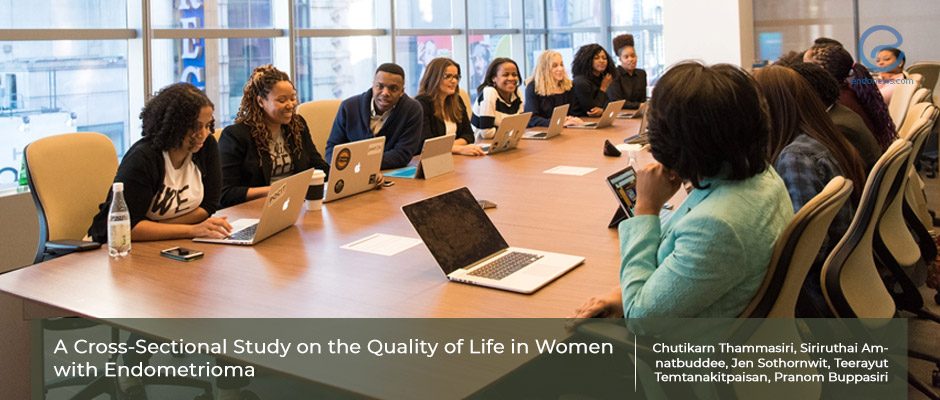Quality of life assessment in women with endometrioma
Mar 14, 2022
Endometrioma patients present with a poorer quality of life, the study supports
Key Points
Highlight
- Women with ovarian endometrioma present with a worse quality of life mostly due to chronic pelvic pain and infertility.
Importance
- Endometriosis patients suffer from the long-term effects of the disease and their quality of life is diminished in many aspects.
- Chronic pelvic pain in particular dysmenorrhea seems to be the biggest contributor to this result.
What's done here
- This is a cross-sectional study that included 99 women with ovarian endometrioma in Thailand.
- It aimed to investigate the quality of life of the patients using the Endometriosis Health Profile-30 (EHP-30) questionnaire.
- The participants were asked to complete the EHP-30 questionnaire which included 30 central items and 23 modular items.
- The scores ranged between 0-100 with 0 meaning the best and 100 meaning the worst quality of life.
- The results of the questionnaires were then statistically analyzed.
Key results
- The most common symptom was dysmenorrhea followed by infertility and chronic pelvic pain.
- Two-thirds of the patients reported they were suffering from severe pain.
- Chronic pelvic pain and the pain score were found as independent factors for a higher score which indicated a poorer quality of life.
- Women with chronic pelvic pain had more problems at work.
Limitations
- No cut-off value for the low quality of life is established in the EHP-30 questionnaire.
- The mean EHP-30 score of Thai women could not be reached.
- Pathological confirmation is needed to have a definitive diagnosis.
Lay Summary
Like most chronic diseases, endometriosis poses a significant risk of diminishing the quality of life in patients suffering from it, particularly with its most considerable symptom; chronic pelvic pain.
Although it is known that endometriosis is more common in East Asian women compared to Caucasians, not many studies in the literature have investigated the quality of life in these patients. With this aim, researchers from Khon Kaen, Thailand, conducted a cross-sectional study using the Endometriosis Health Profile – 30 (EHP-30) questionnaire. The article was published in the January 2022 issue of the International Journal of Women’s Health.
A total of 99 women with radiologically and surgically diagnosed ovarian endometrioma were included in the study. All the participants completed the EHP-30 questionnaire with 30 items in its central section and 23 items in its modular section. The modular section included work, relationship with children, sexual relations, relationship with physician, treatment, and infertility domains. The score ranged between 0-100, with 0 representing the best quality of life.
The most common symptom was dysmenorrhea, with two-thirds of the patients suffering from severe pain, followed by infertility and chronic pelvic pain. Around 80% of these women said they felt the need to lie down due to the pain, and more than 70% said they were not feeling well and they found it hard to exercise or perform other daily activities. Regarding the central section of the questionnaire, the control and powerlessness dimensions showed the highest mean score (45.1±24.4). The highest mean score of the modular section, on the other hand, was found to be infertility with a maximum median score of 34.4, followed by impacts on work and sexual relations domains, whereas the relationship with the physician domain had the lowest score.
Chronic pelvic pain was found to be positively correlated with the quality of life in the work domain, meaning that women with chronic pelvic pain due to endometriosis were less satisfying employees in their work environment with their frequent absence and reduced quality of work. What is more, chronic pelvic pain and the pain score were independent factors of a higher EHP-30 score, indicating poorer quality of life.
The authors stated this study as the first study performed in Thailand investigating the effects of endometriosis symptoms on the quality of life with a questionnaire. However, they added that a more comprehensive study is needed to confirm these impacts on the quality of life of endometriosis patients.
Research Source: https://pubmed.ncbi.nlm.nih.gov/35046731/
endometriosis endometrioma quality of life chronic pelvic pain infertility Endometriosis Health Profile-30

